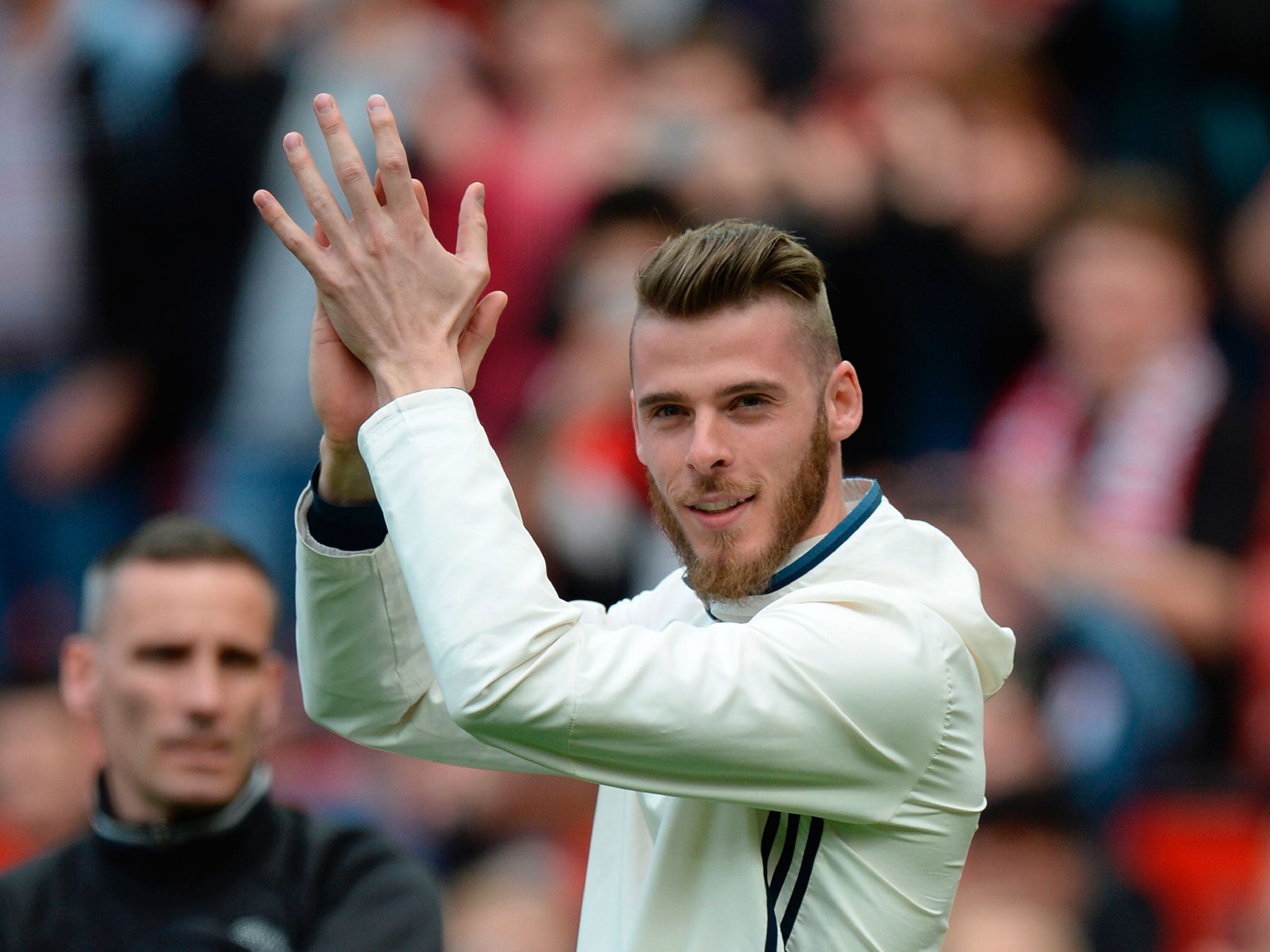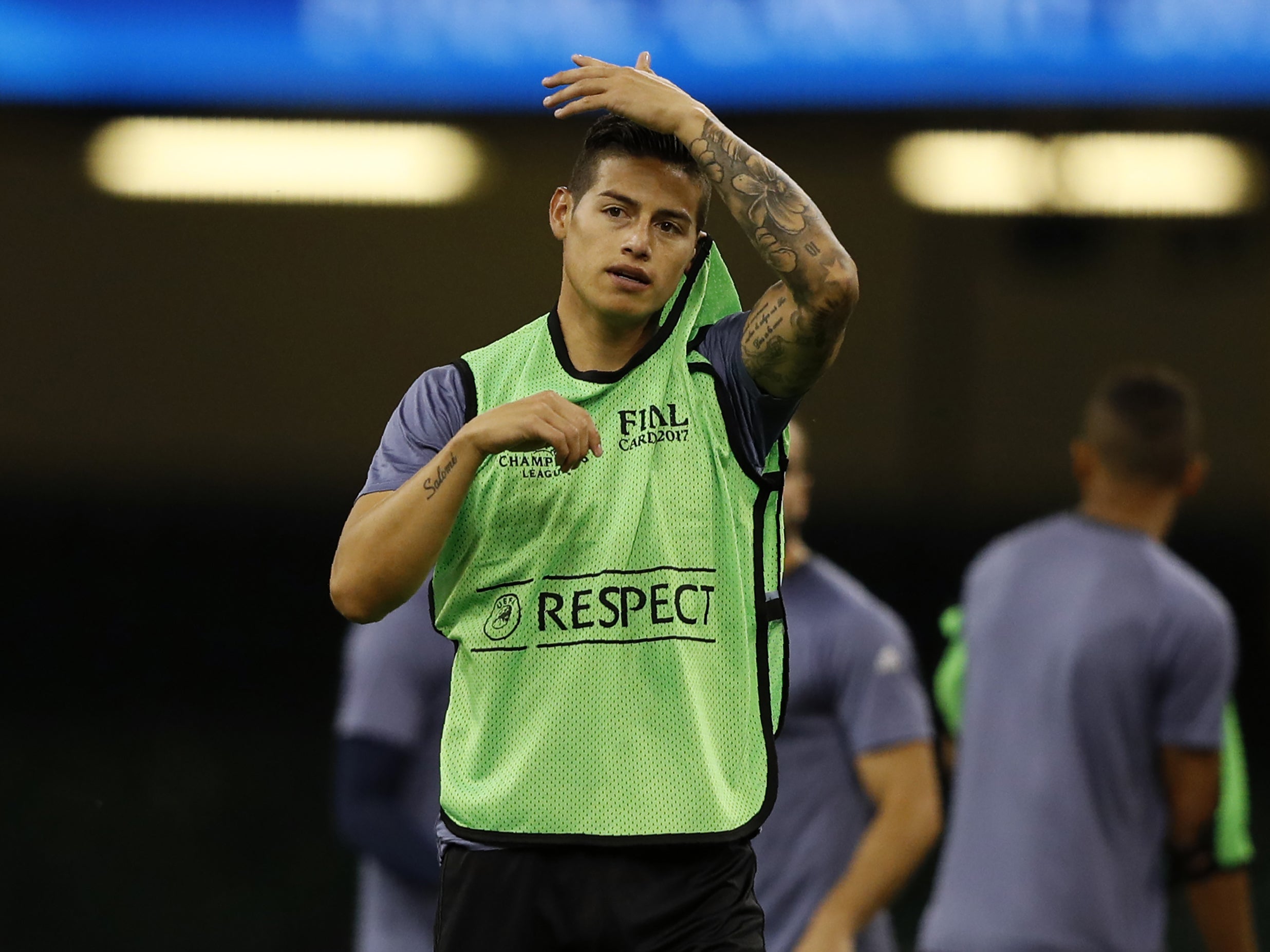Real Madrid and Manchester United: How the relationship of two intertwined superclubs turned on David De Gea saga
Real have copied United's commercial lead while the Red Devils have adopted the 'Galactico' policy

Your support helps us to tell the story
From reproductive rights to climate change to Big Tech, The Independent is on the ground when the story is developing. Whether it's investigating the financials of Elon Musk's pro-Trump PAC or producing our latest documentary, 'The A Word', which shines a light on the American women fighting for reproductive rights, we know how important it is to parse out the facts from the messaging.
At such a critical moment in US history, we need reporters on the ground. Your donation allows us to keep sending journalists to speak to both sides of the story.
The Independent is trusted by Americans across the entire political spectrum. And unlike many other quality news outlets, we choose not to lock Americans out of our reporting and analysis with paywalls. We believe quality journalism should be available to everyone, paid for by those who can afford it.
Your support makes all the difference.It should arguably have been one of the biggest stories of the summer, and could yet be one that is seen as a turning point for summers to come, but has perhaps naturally been somewhat underplayed.
Moves that could happen will inevitably get much more interest than moves that did not happen but, back in March, there were many in the game that felt David De Gea’s long-mooted transfer to Real Madrid would be one of the former.
This was after all a Madrid native who was one of the best in his position in the world, and a position that the European champions wanted to enhance; a player the club greatly wanted and who had family reasons cited as yet another reason to go home to his city. Throw in the fact that United had actually agreed to sell De Gea to Real before, as well as all the intrigue surrounding some of the games he was benched for towards the end of the season, and it seemed highly likely that Real would get their man - just like they always seem to, if they really want it.
And yet they didn’t, as the prospect was killed with a speed that suggested Real had met with a push-back they weren’t used to, but might have to get a bit accustomed to. Was this a new reality, a new super-club landscape? If it was, it wasn’t mentioned much until this week, albeit not quite framed like that.
With United taking the decision to move on from Alvaro Morata due to Real’s utter refusal to lower their asking price, some typically strategic media leaks in Madrid have bizarrely suggested that the English club were merely playing games regarding the striker as some kind of “revenge” for the farcical breakdown of that De Gea transfer back in 2015.
That is untrue, but the general mood does reflect a certain tension between the clubs right now; a few lingering resentments.
Any suggestions they will not do business with each other, however, should be taken with the same levels of salt as Sir Alex Ferguson’s comment that they wouldn’t sell “that mob” “a virus”… a year before selling them one of United’s greatest ever players in Cristiano Ronaldo.
There may be a tension between Real and United right now, and a tetchy evolving relationship, but there is also a curious and deep co-dependency arising from their distinctive positions as two of the biggest clubs in the world. Their very sizes and structures in a relatively small elite end of the game in the super-club era dictate that, at a certain level of transfers, they can only really do business with each other and a handful of others but it's all the more intense with these two because they are also the two biggest and flashiest spenders. Their affairs are interlinked.
Some of the developments of the past few days appropriately reflect this. Manchester United have been in search of both a quality goalscorer and “a star”, and the natural flow of the game means Real are one of only a few clubs who will always be able to offer either. United have ultimately had to turn away from Morata because the Spanish club were asking too much, but James Rodriguez remains an option in regard to the star. In turn, Real want to sell both of those players in order to raise funds and free up squad space for Monaco’s Kylian Mbappe - but the stark reality is that United are (a) one of very few clubs who could afford them and (b) one of very few clubs either player would want to go to.
This is a “problem” when you reach a certain level of wealth and also why, for all the public posturing, the clubs have had a generally good relationship.
The direction of that situation itself reflects the nature of that relationship over the past few years - but also why it might be changing. Ultimately, Real want to sell United their rejects so they can buy one of the most sought-after young players in the world - and someone the Old Trafford hierarchy would have greatly desired themselves. The Spanish club have simply felt they are bigger than United, better in the market, and that they could even take the English club’s best players by using media games to get inside their heads.
That didn’t happen with De Gea, though, and there some within Old Trafford who now feel the refusal to buckle to Real’s strict asking price on Morata could herald a new assertiveness in the relationship from the English club; and ruffle up the European champions a bit.

It also touches on something of an inconvenient truth for Bernabeu president Florentino Perez.
Real want to sell United a player they don’t need in order to bring in one of the finest young stars in the world, and theoretically increase the gap between the side - but they want to do that because there is a considerable gap between the clubs in terms of disposable income. Put bluntly, Real these days just can’t spend the cash that United can.
The Spanish club may have the greater pull, and may currently be able to sell a much grander vision - not least because they are reigning European champions - but it is United with the hard cash.
This is something that Perez is greatly intent on addressing, and adds another twist to their relationship that further interlinks them.
Since returning as president in 2009, the Madrid official has seen United as a commercial model, and looked to replicate a lot of what they’ve done in terms of merchandising, marketing and even the schedule of pre-season trips. So, if he doesn’t yet see the English club as a true equal competitor in the market or on the pitch in the way he does Barcelona or Bayern Munich, he does in terms of the commerce. One indication of much of this and how they see things is how Real are now intent on getting more from Adidas than United for future shirt deals.
While Real are looking to become more like the Premier League club in terms of marketing, United have become more like Real in terms of the market.
Both of their transfer plans are overseen by officials in Perez and Ed Woodward said to be obsessed with primarily signing “stars”, and not as interested in the nuts-and-bolts transfers that otherwise make teams. United have in turn consciously copied Real in that regard, and - again put bluntly - want to be able to get to their level of business, to do the deals for the greatest stars they do, to get the ungettable. It is why it was so important De Gea stayed, and they didn't dance to what Madrid wanted with Morata.
It is also one reason why Jose Mourinho had been frustrated earlier in the summer, but one of a few reasons why the two clubs’ business plans are so interlinked; why they are so co-dependent.
Bigger stories between them than De Gea could yet follow, but that could yet be seen as a key moment in that relationship.
Join our commenting forum
Join thought-provoking conversations, follow other Independent readers and see their replies
Comments